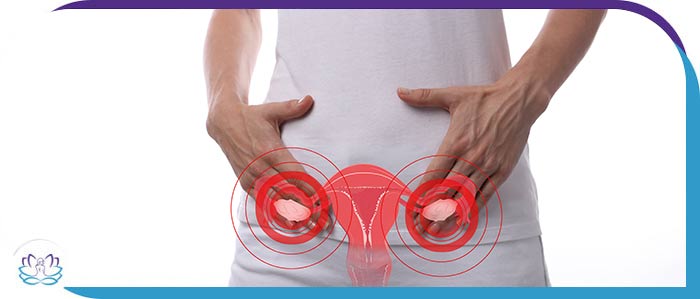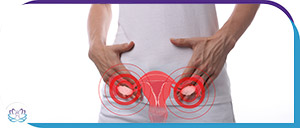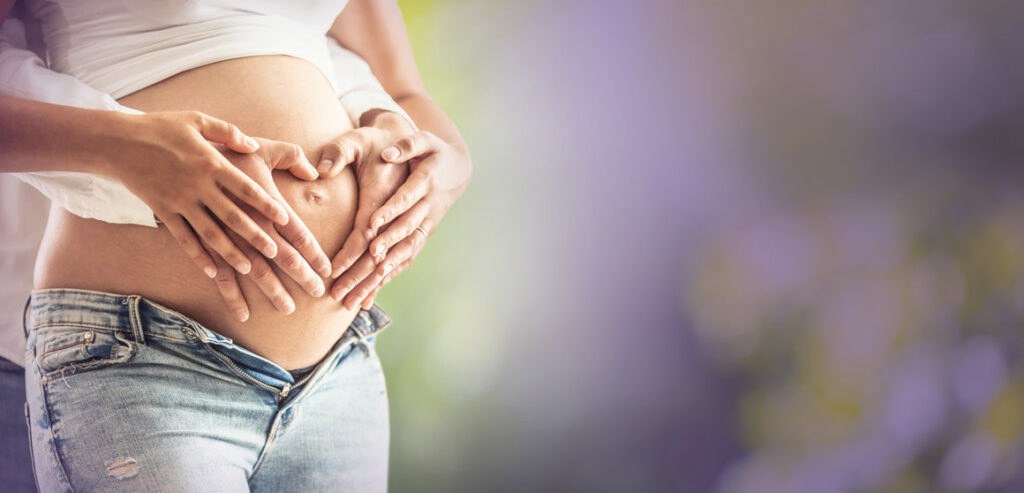Polycystic Ovarian Syndrome (PCOS) Specialist Q&A
If you are showcasing signs of polycystic ovarian syndrome, contact Dr. Michelle Trandai OBGYN in Chicago, IL for comprehensive treatment. For more information, call us today or visit us online to book an appointment.


Table of Contents:
What are the first signs of PCOS?
What is the main cause of polycystic ovary syndrome?
What happens when you have polycystic ovaries?
Is PCOS a serious problem?
The main symptoms and signs of polycystic ovarian syndrome often include:
– Missing periods
– Having irregular periods or very light periods
– Ovaries that are enlarged or have many cysts
– Excessive body hair (on the chest, back, and stomach)
– Weight gain, particularly around the abdomen
– Acne or oily skin
– Infertility
– Small pieces of excess skin found on the armpits or neck (also known as skin tags)
– Dark or thick skin patches often found on the armpits, back of the neck, and under the breasts
– Thinning hair
To diagnose a patient with polycystic ovarian syndrome, Dr. Michelle Trandai OBGYN will review the medical history as well as the symptoms. You may also be asked to undergo a physical exam which will most likely involve a pelvic exam, this exam will review the reproductive organs, as well as both the inside and outside of the body.
Other exams that may be requested depending on the type of symptoms that the patient is exhibiting include an ultrasound and blood tests.
The exact cause for polycystic ovarian syndrome is unclear, many women who suffer from polycystic ovarian syndrome have insulin resistance, which means the body is unable to use insulin efficiently. Insulin levels begin to build up within the body and can cause higher androgen levels. Another cause that can increase insulin levels is obesity, which can make polycystic ovarian syndrome symptoms extremely worse. As well, it has been seen that polycystic ovarian syndrome runs in families, it can be quite common for a mother and daughter, or sisters to have polycystic ovarian syndrome.
Many women will struggle with polycystic ovarian syndrome and are likely to feel physical symptoms which include weight gain, excessive body hair growth, and acne.
Treatment for polycystic ovarian syndrome will depend on a multitude of factors some of which include the age of the patient, the severity of the symptoms, and overall health. Another factor may include if you want to get pregnant in the future or not.
Treatments available if you want to become pregnant in the future include:
– Change in your diet and activity
– Medications that cause ovulation
Treatments available if you do not plan to become pregnant include:
– Birth control
Birth control prevents pregnancy, but also helps to control menstrual cycles, lower androgen levels within the body, and reduce acne flare-ups.
– Diabetes medication
Diabetes medication is often used to help lower insulin resistance within an individual with polycystic ovarian syndrome. Diabetes medication may also help to lower androgen levels, slow bodily hair growth, and help the patient to ovulate regularly.
– Change in your diet and activity
A healthy diet and physical activity are two main factors that can be used to help you lose weight and reduce your symptoms of the polycystic ovarian syndrome. This will also provide your body with insulin to use more effectively, help you ovulate, and lower your blood glucose levels.
– Medications to treat other polycystic ovarian syndrome symptoms
Other medications can help to reduce acne and bodily hair growth.
Polycystic ovarian syndrome can bring on the development of serious health concerns for many women, some of which include high blood pressure, uterine cancer, and problems with the heart and blood vessels.
Often women who are diagnosed with polycystic ovarian syndrome have issues becoming pregnant due to their fertility.
If you are showing signs and symptoms of polycystic ovarian syndrome, like missed or irregular periods, weight gain, acne, or excess body hair growth, call Dr. Michelle Trandai OBGYN today to book your evaluation appointment. We serve patients from Chicago IL, Evanston IL, Ravenswood IL, Uptown IL, Lake View IL, Lincoln Park IL, Buena Park IL, Bowmanville IL, Boystown IL, and Roscoe Village, IL.






